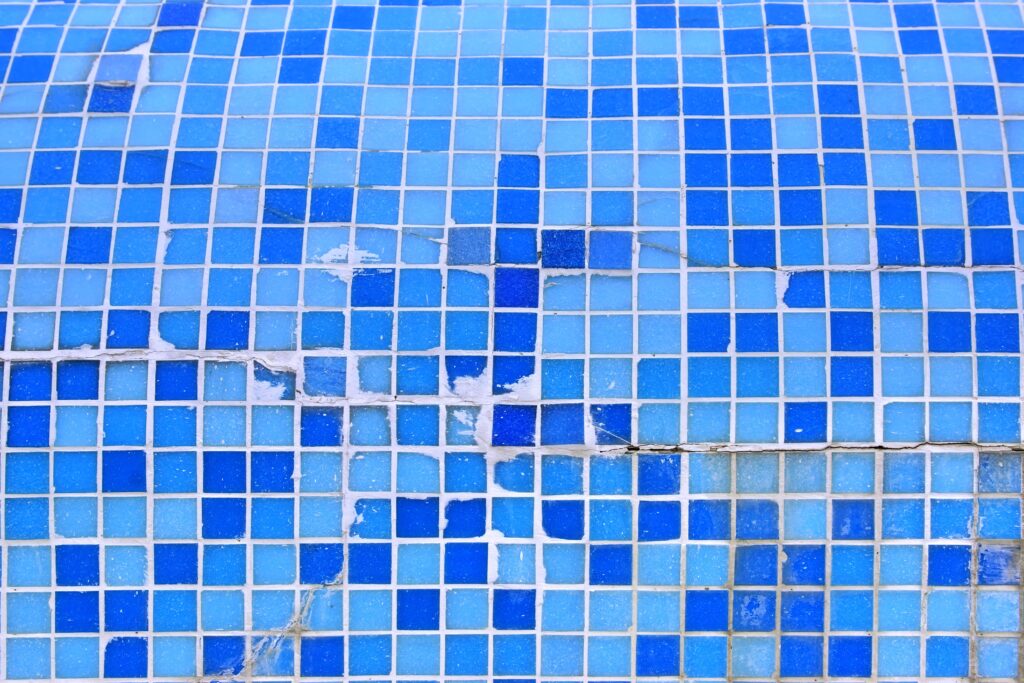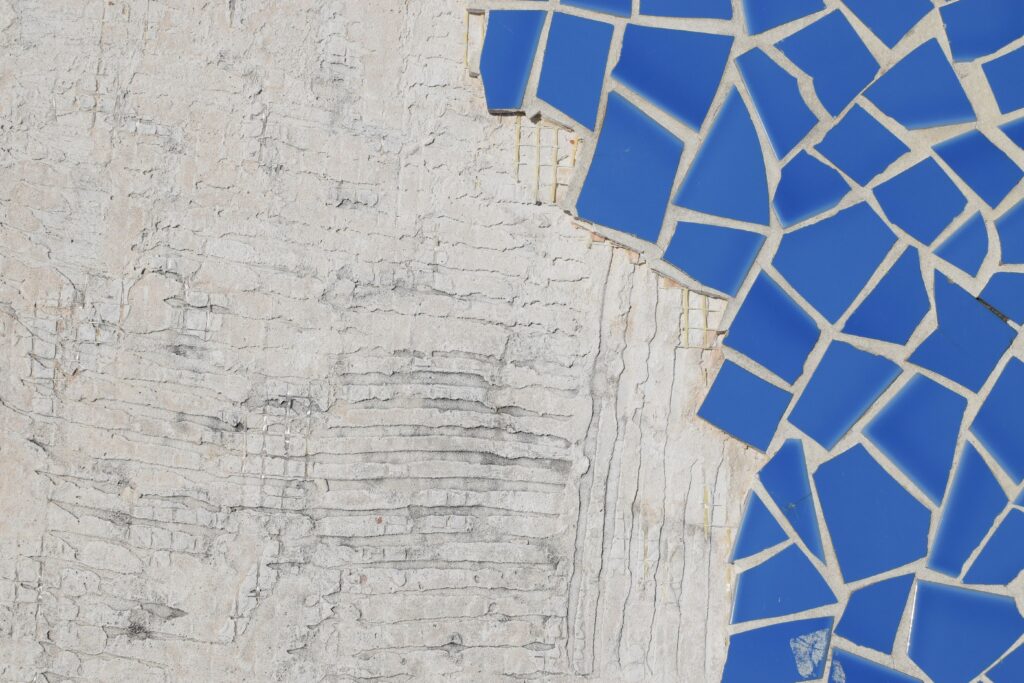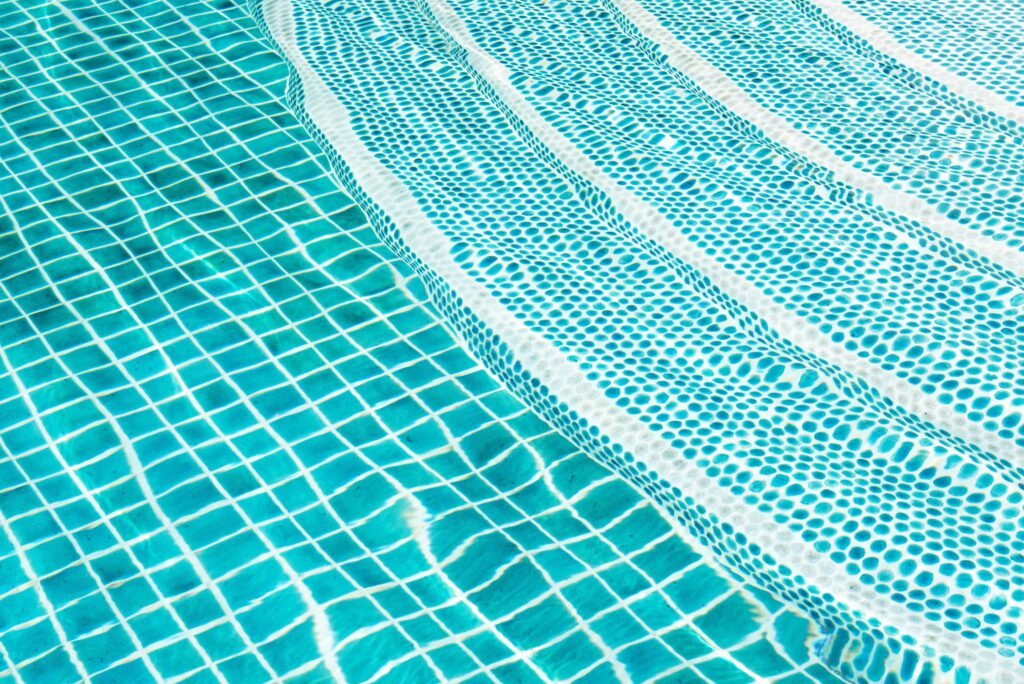Signs For Pool Tile Replacement
If You Are Looking to Retile Your Swimming Pool, Here’s What You Need to Know
Swimming pools are a delightful addition to any home, offering relaxation and recreation. However, over time, the tiles in your pool may show signs of wear and tear, indicating the need for replacement. In this article, we’ll guide you through the process of pool tile replacement, covering everything from recognizing the signs to choosing the right tiles and estimating costs.
Signs It’s Time to Replace Your Swimming Pool Tiles
White Deposits on Tiles
The presence of stubborn white deposits on your swimming pool tiles is often a sign of calcium buildup, indicating hard water issues. Despite regular cleaning, these deposits may persist, detracting from the pool’s aesthetics.
Tiles Falling Off
When tiles start detaching from the pool walls, it’s a clear indication of adhesive failure or underlying structural issues. This poses safety concerns and warrants immediate attention to prevent further damage.
Cracked or Chipped Tiles
Cracks and chips in swimming pool tiles not only compromise the pool’s appearance but also create potential hazards. These damages can worsen over time, leading to water leakage and additional repair expenses.
Discoloration and Dullness
As tiles age, they may lose their vibrant color and luster, appearing dull or discolored. Despite regular maintenance efforts, such as cleaning and chemical treatments, the tiles may fail to regain their original brilliance, signaling the need for replacement.
Types of Swimming Pool Tiles
When planning to retiling your swimming pool, you have various tile options to choose from, each offering unique aesthetics and functionality.
- Glass: Known for its sleek appearance and reflective properties, glass tiles add sophistication to any pool.
- Mosaic: Mosaic tiles allow for intricate designs and patterns, enhancing the visual appeal of your pool.
- Stone: Natural stone tiles, such as travertine or slate, exude elegance and durability, perfect for creating a rustic ambiance.
- Ceramic: Affordable and versatile, ceramic tiles come in a wide range of colors and designs, suitable for various pool styles.
- Mural: Mural tiles feature artistic motifs and images, allowing you to customize your pool’s design with personalized artwork.
- Porcelain: Porcelain tiles are renowned for their durability and resistance to water absorption, ideal for high-traffic pool areas.
- Custom: Custom tiles offer endless possibilities for creativity, enabling you to design a one-of-a-kind pool aesthetic.
- Glazed: Glazed tiles are coated with a protective layer, enhancing their durability and color vibrancy, perfect for long-term use.
- Handmade: Handmade tiles showcase craftsmanship and authenticity, adding character to your pool space.
Swimming Pool Tile Replacement Cost
Signs For Pool Tile Replacement
The cost of replacing swimming pool tiles varies depending on factors such as tile type, quality, and project size. On average, standard pool tiles range from $1.00 to $35.00 per square foot, while premium options can cost up to $100.00 per square foot.
Common Swimming Pool Tile Problems
Algae Growth
Algae infestation is a common issue in poorly maintained pools, manifesting as green discoloration. Proper chlorine levels and regular maintenance are essential for preventing algae growth and ensuring a clear, inviting pool environment.
Excessive Chlorine
While chlorine is effective in sanitizing pool water, excessive levels can cause eye irritation and affect water clarity. Monitoring chlorine levels regularly and adjusting them as needed is crucial for maintaining a balanced pool environment.
Conclusion
Pool tile replacement is a crucial aspect of maintaining a safe and visually appealing swimming pool. By identifying signs of tile deterioration, selecting suitable replacement tiles, and budgeting for the project’s cost, you can prolong your pool’s lifespan and enhance its enjoyment for years to come.
Choose Fujiwa Tiles For Pool Tile Replacement Project!
FAQs
- How often should swimming pool tiles be replaced?
- The frequency of pool tile replacement depends on factors such as tile quality, maintenance, and usage. Generally, high-quality tiles can last 10-15 years or longer with proper care.
- Can I replace swimming pool tiles myself?
- While DIY pool tile replacement is possible for minor repairs, it’s recommended to hire professionals for comprehensive retiling projects to ensure optimal results and adherence to safety standards.
- Are there eco-friendly options for swimming pool tiles?
- Yes, eco-friendly tile materials such as recycled glass and sustainable ceramics are available, offering environmentally conscious alternatives for pool owners.
- How do I maintain the appearance of my swimming pool tiles?
- Regular cleaning, proper chemical balance, and prompt repairs are key to preserving the beauty and integrity of swimming pool tiles. Additionally, avoiding abrasive cleaning agents can help prevent surface damage.
- What factors should I consider when choosing swimming pool tiles?
- When selecting tiles for your pool, consider factors such as durability, slip resistance, aesthetic preferences, and compatibility with your pool’s design and surroundings.



